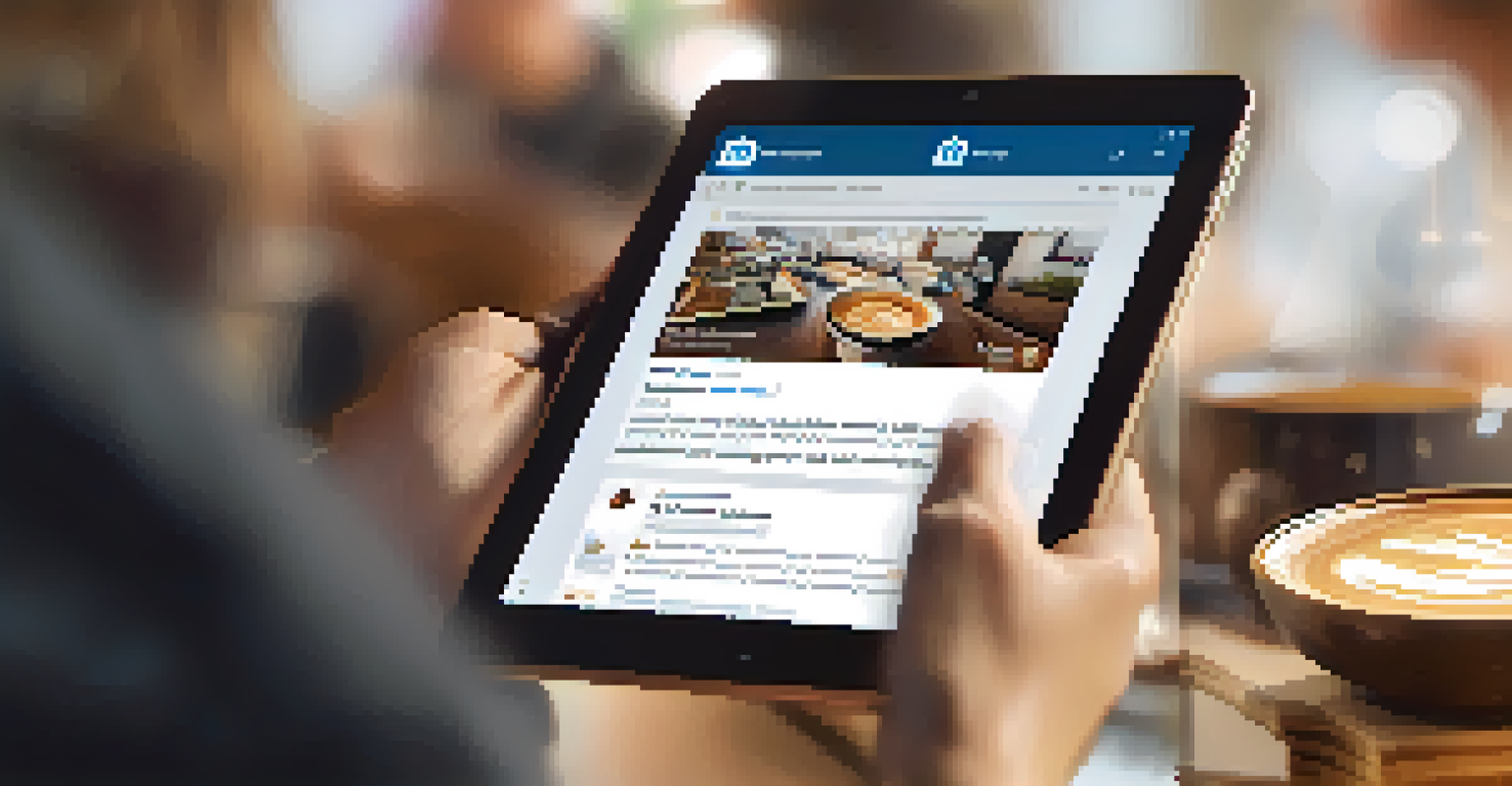Maximizing LinkedIn: Your Ultimate Guide to Career Growth

Understanding LinkedIn: The Power of Professional Networking
LinkedIn is more than just a digital resume; it's a dynamic platform designed for professional networking. Think of it as the online version of a career fair, where you can connect with industry leaders, potential employers, and fellow professionals. By leveraging this platform effectively, you can open doors to opportunities that may otherwise remain closed.
Your network is your net worth.
The essence of LinkedIn lies in its ability to showcase your skills, experiences, and achievements in a way that attracts attention. When used correctly, it acts as a magnet for opportunities, making you more visible in your industry. This visibility can be especially beneficial when seeking new job positions or trying to expand your professional network.
As you navigate through LinkedIn, remember that relationships matter. Engaging with others, whether through comments, shares, or direct messages, helps to build a community around your professional brand. This engagement can lead to collaborations, mentorships, and even job offers, making your LinkedIn presence a critical element of your career growth strategy.
Creating an Eye-Catching LinkedIn Profile
Your LinkedIn profile is your digital storefront, so it’s essential to make it appealing and informative. Start with a professional photo and a compelling headline that clearly communicates who you are and what you do. A well-crafted profile summary can serve as your elevator pitch, summarizing your skills and career aspirations in a concise manner.

When detailing your work experience, focus on achievements rather than just duties. Use quantifiable metrics to illustrate your impact in previous roles; for instance, instead of saying you 'managed a team,' you might say you 'led a team of 10 that increased sales by 30% in one year.' This approach not only highlights your capabilities but also makes your profile more engaging.
Harness LinkedIn for Networking
LinkedIn is a powerful platform for building meaningful professional relationships that can lead to new opportunities.
Don’t forget to include relevant skills and endorsements, as they play a significant role in how you’re perceived by potential connections or employers. Request endorsements from colleagues to further validate your expertise. A robust profile not only attracts attention but also serves as a foundation for meaningful connections.
Building Your Network: Quality Over Quantity
When it comes to networking on LinkedIn, focus on building meaningful relationships rather than just accumulating contacts. Start by connecting with colleagues, industry peers, and alumni from your school. Personalizing your connection requests can significantly increase the chances of acceptance, so take a moment to explain why you want to connect.
Opportunities don't happen. You create them.
Engagement is key! Regularly interact with your network by liking, commenting, or sharing posts that resonate with you. This not only keeps you on their radar but also helps to foster relationships over time. Engaging with others’ content can lead to reciprocal actions, expanding your visibility and reach within your professional circle.
Additionally, consider joining relevant LinkedIn groups related to your industry or interests. These groups provide a platform to share insights, ask questions, and network with like-minded professionals. Active participation in these spaces can position you as a thought leader and open up new opportunities for collaboration.
Leveraging LinkedIn for Job Searches
Using LinkedIn as a job search tool can be incredibly effective if you know how to navigate it properly. Start by using LinkedIn's job search feature, which allows you to filter positions by various criteria, such as location, experience level, and industry. Setting up job alerts can help you stay updated on new opportunities that align with your career goals.
Beyond simply applying for jobs, take advantage of the platform to research companies and their cultures. Follow organizations you're interested in, engage with their posts, and connect with current employees to gain insights into the workplace environment. This proactive approach not only demonstrates your interest but also helps you stand out in the application process.
Optimize Your Profile Effectively
A compelling LinkedIn profile, highlighting achievements and skills, attracts attention from potential employers and connections.
Networking also plays a significant role during your job search. Don’t hesitate to reach out to connections for informational interviews or advice. Often, referrals from current employees can give you a leg up in the hiring process, making your LinkedIn connections an invaluable asset in securing your next role.
Showcasing Your Expertise Through Content Creation
Creating and sharing content on LinkedIn can establish you as a thought leader in your field. Whether it’s writing articles, sharing industry news, or posting your insights, this active participation can enhance your visibility. Regularly sharing valuable content not only helps you connect with your audience but also encourages meaningful discussions.
Consider what topics you are passionate about and how they relate to your industry. You can share personal experiences, lessons learned, or even industry trends, which can resonate with your network. This not only positions you as knowledgeable but also invites engagement from others who share similar interests.
Furthermore, tagging relevant individuals or companies in your posts can increase reach and foster connections. Engaging with those who comment on your content builds relationships and expands your network organically. With time, your commitment to content creation can lead to increased opportunities and enhanced professional credibility.
The Importance of Recommendations and Endorsements
Recommendations and endorsements on LinkedIn serve as powerful testimonials that can validate your skills and experiences. They act like personal references, showcasing your strengths from the perspective of others. Don’t hesitate to ask former colleagues or supervisors for recommendations, as these can enhance your profile significantly.
When requesting a recommendation, be specific about what you would like them to highlight. This can make it easier for them to write something impactful. For instance, if you worked on a significant project together, ask them to focus on your contributions and the outcomes achieved.
Engage Consistently for Growth
Regular engagement on LinkedIn, through sharing content and participating in discussions, fosters strong professional ties and enhances visibility.
Additionally, regularly endorse the skills of your connections. This not only strengthens your relationships but often leads to reciprocation. A well-rounded set of endorsements can further bolster your credibility and make your LinkedIn profile more appealing to potential employers.
Staying Active and Engaged for Long-term Success
Consistency is key to maximizing your LinkedIn presence. Regularly updating your profile with new accomplishments, skills, or experiences keeps your online identity fresh and relevant. Make it a habit to check in on your LinkedIn account weekly, whether to engage with connections or to share updates about your professional journey.
Engagement doesn’t stop at your own profile; actively participating in discussions on posts or within groups keeps you connected to your industry. Sharing your thoughts on trending topics or commenting on others’ insights can spark conversations and deepen your professional relationships.

Finally, remember that networking is not just about what you can gain but also about what you can give. Offer help, share resources, or introduce connections to one another. By fostering a spirit of generosity, you build a network that not only supports you but also thrives on collaboration, creating a strong foundation for long-term career growth.